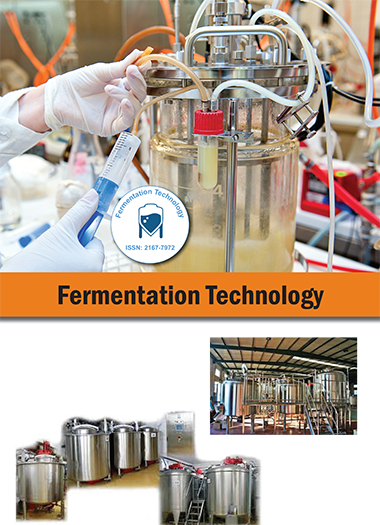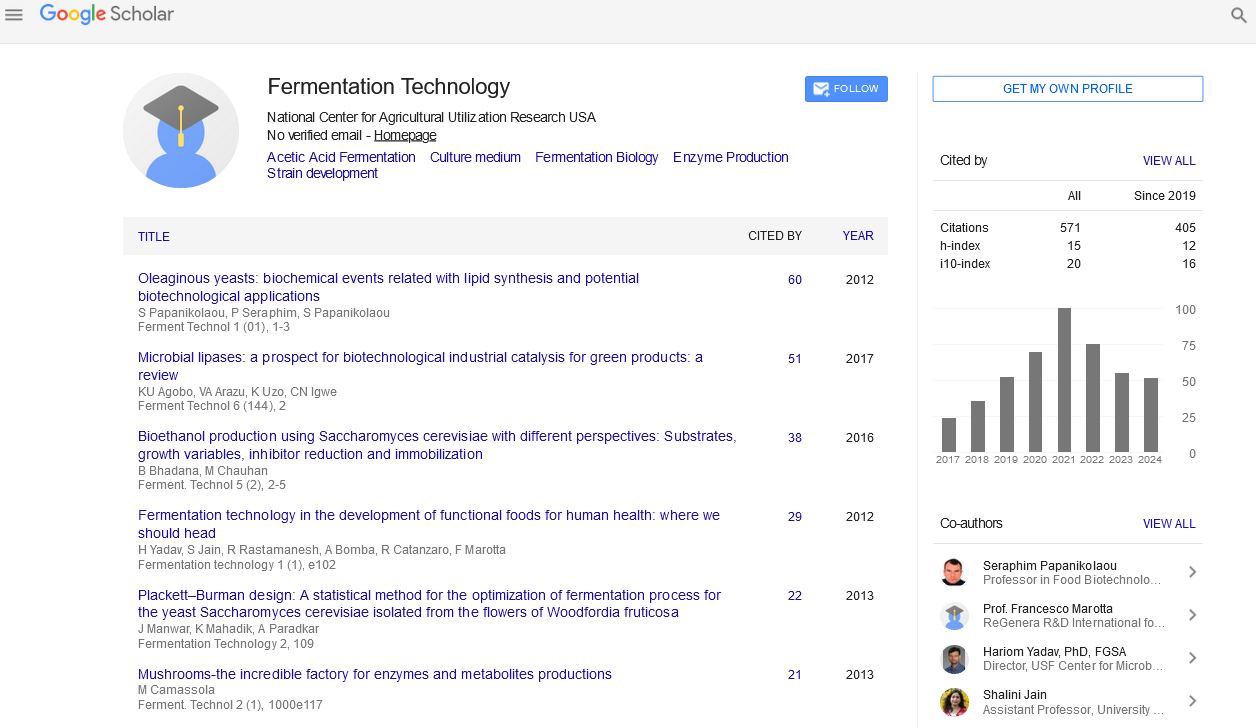Indexed In
- Open J Gate
- Genamics JournalSeek
- Access to Global Online Research in Agriculture (AGORA)
- RefSeek
- Hamdard University
- EBSCO A-Z
- OCLC- WorldCat
- Publons
Useful Links
Share This Page
Journal Flyer

Open Access Journals
- Agri and Aquaculture
- Biochemistry
- Bioinformatics & Systems Biology
- Business & Management
- Chemistry
- Clinical Sciences
- Engineering
- Food & Nutrition
- General Science
- Genetics & Molecular Biology
- Immunology & Microbiology
- Medical Sciences
- Neuroscience & Psychology
- Nursing & Health Care
- Pharmaceutical Sciences
Tannase activity by Enterococcus faecium isolated from local fermented food
World Congress on Beneficial Microbes: Food, Pharma, Aqua & Beverages Industry
August 25-27, 2015 Valencia, Spain
Merih Kivanc and Onur Temel
Anadolu University, Turkey
Posters-Accepted Abstracts: Ferment Technol
Abstract:
Tannin acyl hydrolase (E.C. 3.1.1.20) commonly called tannase catalyzes the hydrolysis of ester bonds in hydrolyzable tannins such as tannic acid, thereby releasing glucose and gallic acid. The aim of this study was to examine the occurrence of tannase activity Enterococcus faecium isolated from local fermented food. We examined a range of Enterococcus faecium for their potential to degrade tannins. Bacterial tannase activity was checked by a spectrophotometric and a visual reading method. Briefly, fresh cultures on MRS or MLO agar plates were harvested with sterile cotton swabs and suspended in 1 ml of substrate medium (pH 5.0) containing 33 mM NaH2PO4 and 20 mM methylgallate (Fluka Chemie, Germany) to prepare a dense suspension (at least equivalent to a no. 3 McFarland turbidity standard). The substrate medium was then incubated aerobically at 37oC for 24 hours. After incubation, the sample was alkalinized with an equal amount of saturated NaHCO3 solution (pH 8.6) and exposed to the atmosphere at room temperature (23oC) for 1 hour. Green to brown coloration of the medium was judged as a positive indicator of tannase activity in the visual reading method. In the spectrophotometric method, 1 ml of the suspension was removed, centrifuged and the supernatant was read at A440 in a spectrometer. As a result of the performed tests, the optimum temperature was found to be 37oC, pH was found to be 5.0, methylgallate concentration used as the substrate was found to be 7 mM and tannic acid concentration was found to be 1.75 mM.
Biography :
Dr. Meri Kivanc has completed her Ph.d from Atatürk University. Currently she is working as Professor in Anadolu University, Turkey.
Email: mkivanc@anadolu.edu.tr

